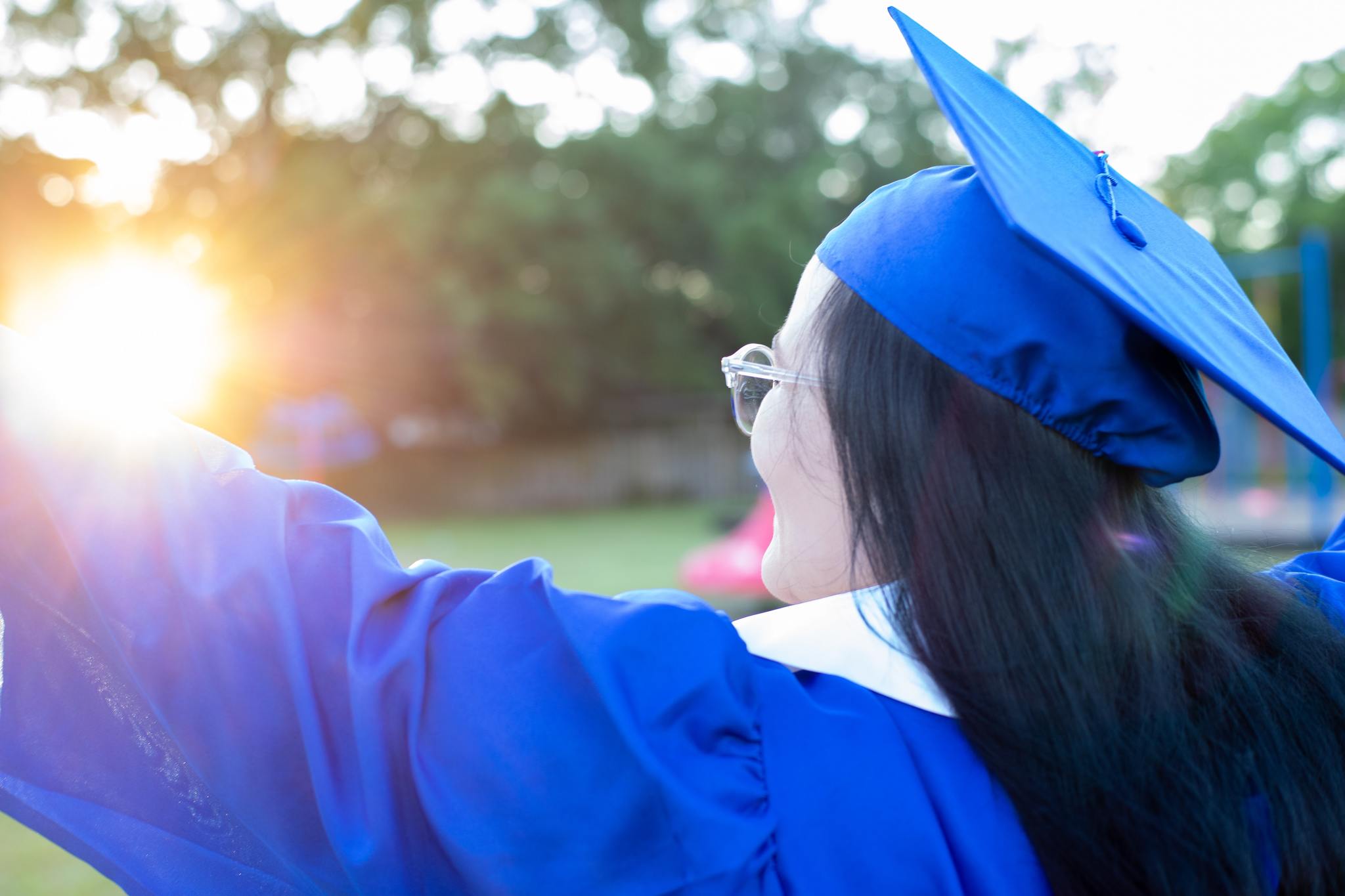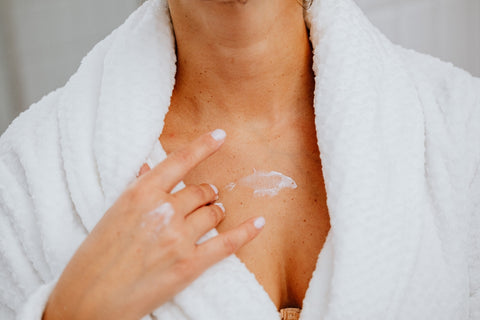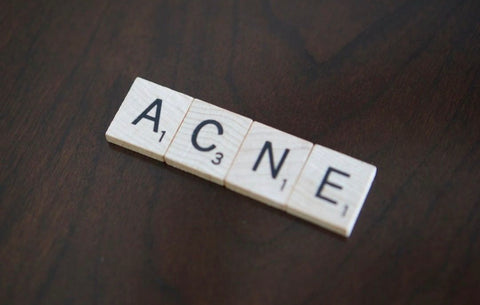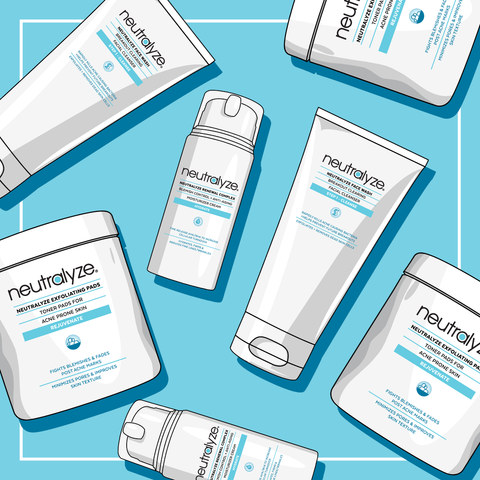Teens with Acne Problems End Up Better in School, Career: Study

inevitably face this skin problem sometime in their lives.
Because acne affects teens in different ways, the physical and emotional struggles that come with it vary from one individual to another, though it can be generally debilitating because acne is visible and can't be covered by clothing, unlike other dermatological conditions. It primarily hits self-image and interpersonal relationships more than any other aspect of a teen's life, especially for those suffering from moderate to severe acne. Young women with bad acne problems are more likely to be self-conscious and isolate themselves than others who consider themselves to have mild acne.
Economics Professors: There's an Upside to Teen Acne
Amid more popular discussions about teen acne’s negative emotional impact, two economics professors found out that teenagers who battled acne while in school turned out to be more successful later in life.
Erik Nesson, a professor at Indiana's Ball State University, and Hugo Mialon, who teaches at Georgia's Emory College, are the authors of the paper "Do Pimples Pay? Acne, Human Capital, and the Labor Market Abstract." They used data from the National Longitudinal Study of Adolescent to Adult Health in which 7th to 12th grade US students were surveyed about their academic performance, views on physical attractiveness, including the issue of acne, and their social life between 1994 and 1995. The respondents were re-surveyed in three waves afterward until 2016. They were in their 20s and 30s in the later waves and were asked about their educational achievement and income at that time.
Data from this study showed that almost 50% of high school students experienced having pimples in varying degrees, from occasionally to daily. Those with skin problems had lower self-confidence and a sense of belongingness. They also preferred joining non-sports clubs instead of sports clubs. But these seemingly social underachievers got higher scores in class and overall grade point averages. Those with skin conditions had a 2-percentage-point likelihood of getting A's.
The researchers said that the data seemed to prove their theory that teens with acne tend to pour their attention on their studies "or brainwork" than say, athletics and other social events, improving their academic performance.
The third and fourth stages of the study showed that these previously shy but academically inclined respondents were able to enter college and/or get a diploma. Nesson and Mialon found that students with acne had a 3.8-percentage-point likelihood to finish their bachelor's degree. Moreover, participants who had skin issues and who went for more academic pursuits during their youth reported higher earnings as adults—$150,000 or more per year at most—especially among women.
Experts Have Mixed Reactions to Study
Mialon expressed hope that their study will help teens cope with acne better and reduce cases of depression and suicide in this age group. Meanwhile, Nesson said that their findings might help teens focus on the potentially longer-lasting positive side effects of having acne, which can subside by the time they reach adulthood.
Other members of the academe, like University of Alberta's Vera Brencic, believe that more research is needed to account for the acne-success connection. However, the economics prof said that the "Do Pimples Pay?" paper is interesting, considering that other related research had linked disadvantages, such as not being physically attractive or being short, to poorer outcomes in one's professional life.
Others oppose Nesson and Mialon's findings outright, like New York-based psychologist Jennifer Hartstein, who said that not all acne-ridden teens are friendless. They just don't socialize too much when they have flare-ups.
Meanwhile, Dr. Adam Friedman, who heads George Washington University's Dermatology Residency Program, said that acne can be "disabling in all facets of life" and in many cases, de-motivate teens while still in school or adults when they start employment.
Skin Wellness Center founding partner Kimberly Grande told Tennessee-based Knox News that other factors affect teenagers' performance in school, including their home life and personal work ethic.
Nesson told the same news network that the paper doesn't claim it has found "iron-clad proof." He noted that links seen between acne and good grades were from students who were not battling depression.
Ways to Treat Teen Acne
Acne treatment among teens varies from person to person depending on the severity or grade of their acne.
Mild Acne
Your case of acne is mild if the blemishes on your face are only on the surface of your skin. Most of your blackheads or whiteheads are not inflamed. You may get red pimples but only a few and small ones. They don't scar.
Mild acne is usually treated using over-the-counter topical medications that are applied directly to your skin. They include facial cleansers or washes, benzoyl peroxide, azelaic acid cream, or retinoid creams or gels.
Moderate to Severe Acne
Moderate acne involves noticeable breakouts, some inflamed blemishes, and plenty of blackheads. Meanwhile, in severe acne, blemishes on your face are more red or inflamed, can be filled with pus (pustules) and more painful, penetrating beyond the skin's surface. Consult a doctor for these cases.
Doctors and dermatologists may advise you to apply specific topical medication containing ingredients such as nitric oxide or dapsone together with oral antibiotics. Procedural treatments may be required when there's too much scarring.
General Tips for Controlling Teen Acne
Although acne isn't triggered by dirty skin, cleanliness plays a big part in properly managing teen acne as well as these other steps:
- Don't scratch, pick, or squeeze your pimples.
- Cleanse—don't scrub—your face twice a day with a gentle cleaning agent and warm water. Don't over-wash and over-dry your skin as dry skin can worsen acne.
- Avoid falling for the latest trendy product promoted online. Allow your acne breakout to calm down—this may take five days to a week—and stick with your basic routine.
- Regularly clean your hair, and keep it away from your face.
- When shaving your face, alternate between a clean, sharp razor and electric shaver. Then use warm water to soften your beard. Shave as lightly as possible to avoid irritating pimples.
- Clean your eyeglasses regularly.
- Wear only clean headbands and caps. Minimize contact or pressure on your skin from items such as your phones, tight collars or straps, and helmets.
- Look for "non-acnegenic" and "non-comedogenic" (whiteheads and blackheads) makeup and greasy hair products. Never sleep with your makeup on.
- Avoid overexposure to the sun as it may aggravate skin inflammation.
How Parents Can Help
Physical appearance matters a lot to teenagers so parents can support their teen kids by taking their concerns seriously. Keep your communication lines open, and help your teens distinguish the facts and myths related to acne, including its causes. Consult a counselor or psychologist if your child seems to be exceptionally withdrawn.
Offer only a few reminders when it comes to your teens’ facial cleansing or taking acne medicine as they are turned off by nagging or repeated reminders.
Connect your teen with a dermatologist if self-care and over-the-counter treatments don't work. Be ready to supply your doctor with the following:
- Medical information such as products your teens have been using or supplements and vitamins they’re taking
- Personal information like recent life changes, source of major stresses
- Questions about possible side effects of the medication, duration of intake/application/treatment, how soon will symptoms improve after the first intake/treatment, and other self-care tips.


